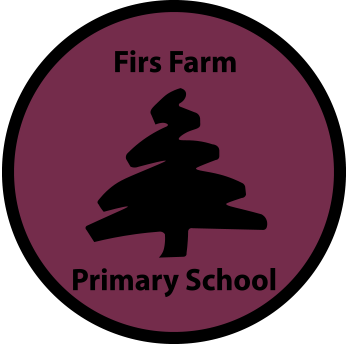Music
Music
At Firs Farm, our aim is to provide a music curriculum which will enable each child to reach their full potential in music; encourage children to enjoy singing, composing and performing; and provide them with the opportunity to perform in front of an audience both within and outside of school. Children learn to work both independently and as part of a group, ensuring that the skills of resilience and teamwork are promoted in this subject. They are enthused and engaged in the wide variety of music activities available to them. Opportunities to perform outside of school, within our local environment, ensure our children understand its significance and place within the wider world and that these experiences excite and inspire their thirst for knowledge and participation in this subject. Through participation in the range of musical experiences provided, we also aim to build children’s confidence.
We believe that singing lies at the heart of good music teaching. Our teaching focuses on developing the children’s ability to sing in tune and with other people. Through singing songs, children learn about the structure and organisation of music. We teach them to listen and to appreciate different forms of music. As the children get older, we expect them to maintain their concentration for longer and to listen to more extended pieces of music. Children develop descriptive skills in music lessons when learning about how music can represent feelings and emotions. We teach them the disciplined skills of recognising pulse and pitch; how to work with others to make music; and how individuals combine together to make sounds. We also teach them musical notation and how to begin to compose music.
We recognise that there are children of widely different musical abilities in all classes, so we provide suitable learning opportunities for all children by matching the challenge of the task to the ability of the child. We achieve this in a variety of ways such as:
• setting common tasks which are open-ended and can have a variety of responses;
• setting tasks of increasing difficulty;
• grouping children by ability in the room and setting different tasks to each ability group;
• using classroom assistants to support the work of individuals or groups of children;
• where possible, providing resources of different complexity depending on the ability of the child.
Our curriculum is centred on ‘Charanga Musical School’, an online music-based scheme, in which the children learn to sing, compose and play instruments. They also have an opportunity to develop an understanding of pulse, rhythm and notation.
Charanga is an integrated, practical, exploratory and child-led approach to musical learning. The interrelated dimensions of music weave through the units to encourage the development of musical skills as the learning progresses through listening and appraising, differing musical activities (including creating and exploring) and performing.
From Reception to Year 6, the learning consists of six half-termly Units of Work. The final unit in each year - Reflect, Rewind and Replay - allows for revision and more extension activities.
All activities are based around a song.
- Games embed the Interrelated Dimensions of Music through repetition
- Singing is at the heart of all the musical learning
- Playing instruments with the song to be learnt - tuned/un-tuned classroom percussion and an option to play any band instrument. A sound-before-symbol approach is used but scores are provided as an understanding of notation is introduced to the children
- Improvising with the song using voices and instruments occurs in some Units of Work
- Composing with the song using instruments occurs in some Units of Work
Music in EYFS involves children singing songs, making music, dancing and experimenting with ways of changing them.
Music Enrichment Programmes
- All children in Years 1, 3 and 5 have the opportunity to participate in a Music Enrichment Programme via the Enfield Music Service, culminating in a performance either for parents and peers or alongside local schools:
- Year 1: ‘Singing as One’ Partnership Festival (Spring Term)
- Year 3: Recorder (two terms; usually Autumn and Spring)
- Year 5: ‘Summer Sounds’ Partnership Festival (Summer Term)
Instrumental lessons
Children are offered the opportunity to study a musical instrument with peripatetic teachers. Peripatetic music teaching is organised by the Local Education Authority’s Music Service. Parents who want their children to participate in the scheme must purchase or hire the instrument and pay the additional music lesson fees on a termly basis. These lessons are normally taught to individuals or small groups who have chosen to learn one of a variety of instruments, such as the guitar, violin, keyboard or saxophone. This is in addition to the normal music teaching of the school, and usually takes place during normal lessons from which children are withdrawn for the duration of the instrumental lesson.
Singing Playgrounds
Firs Farm is a ‘Singing Playgrounds School’ which means it is part of an initiative that trains up a group of children to be song leaders, leading other children in singing games in the playground. Children in KS2 have the opportunity to apply to be a song leader, while all children are able to learn and participate in the singing games. New songs are introduced in assemblies to give children the opportunity to familiarize themselves with them beforehand.
